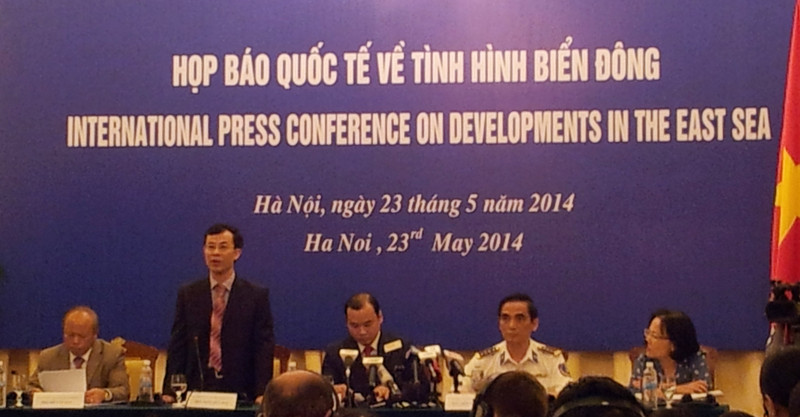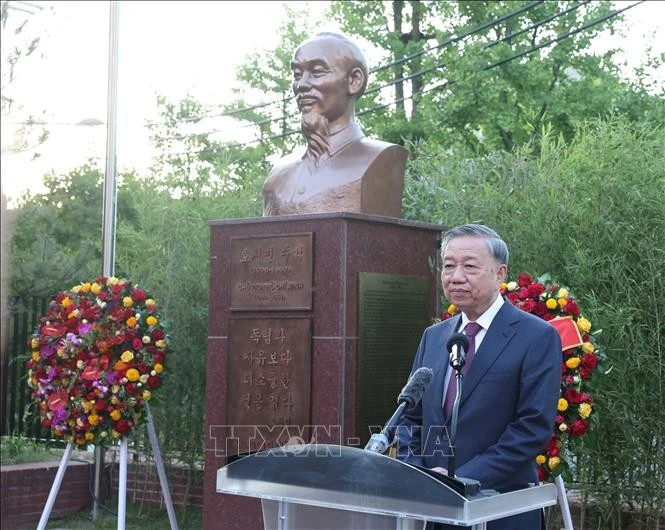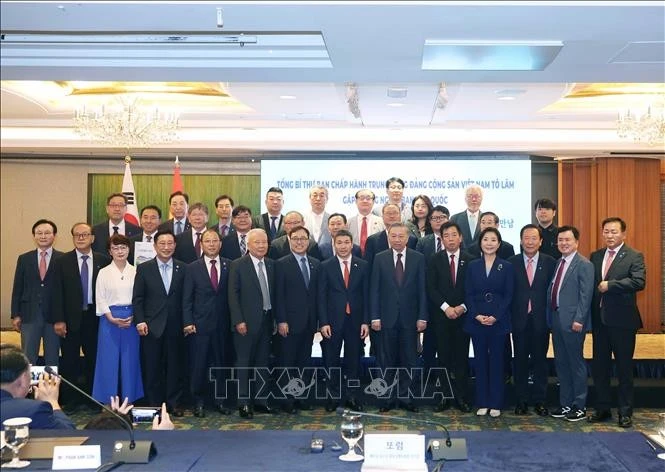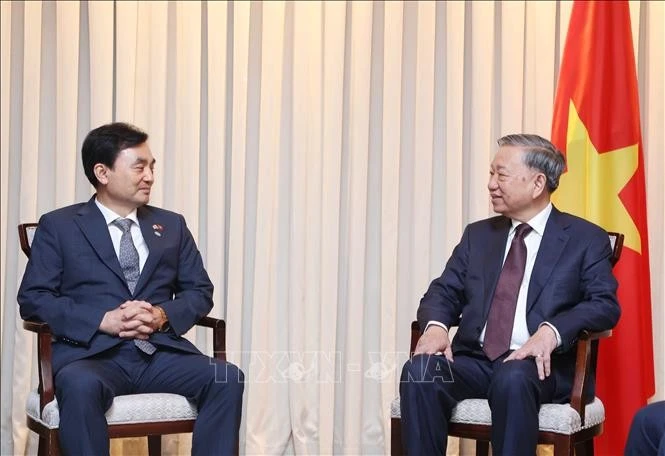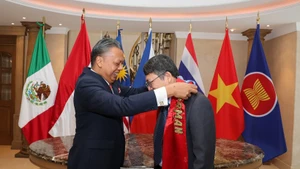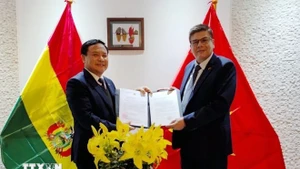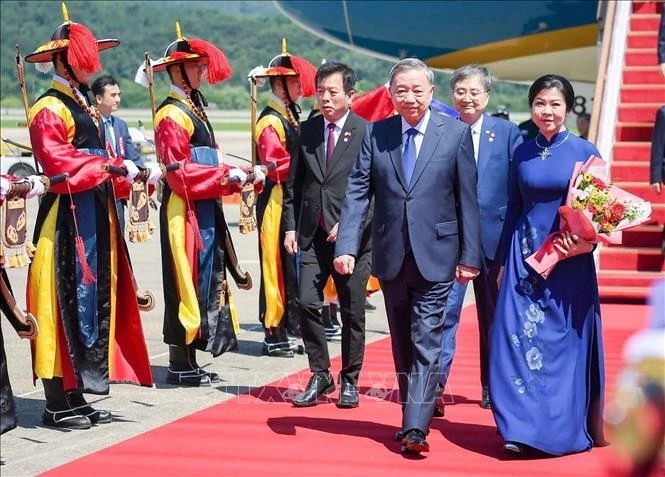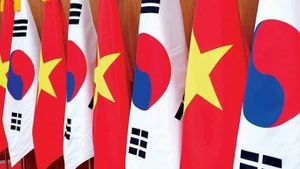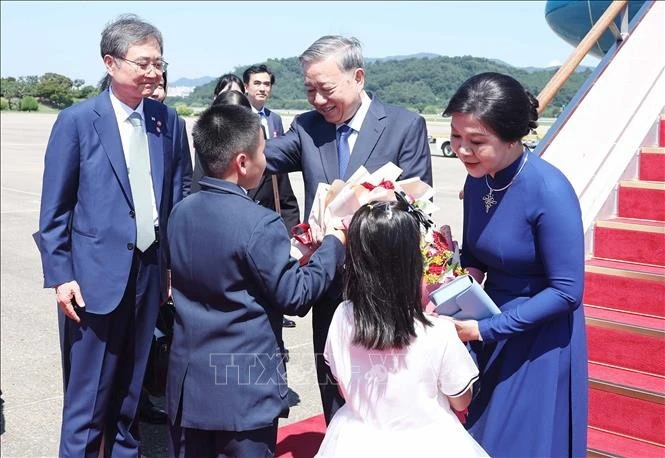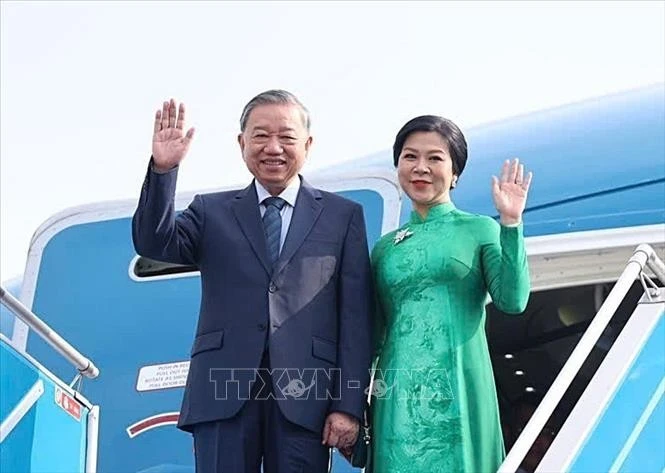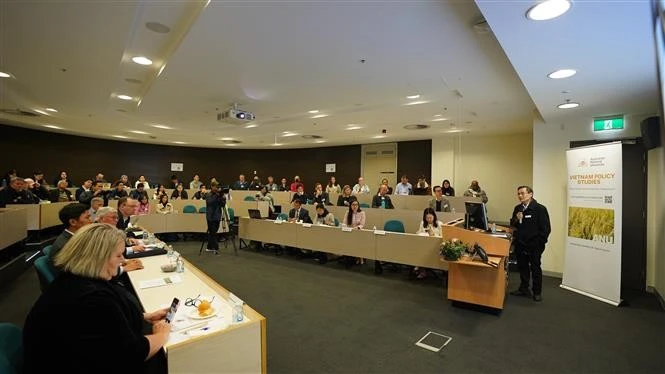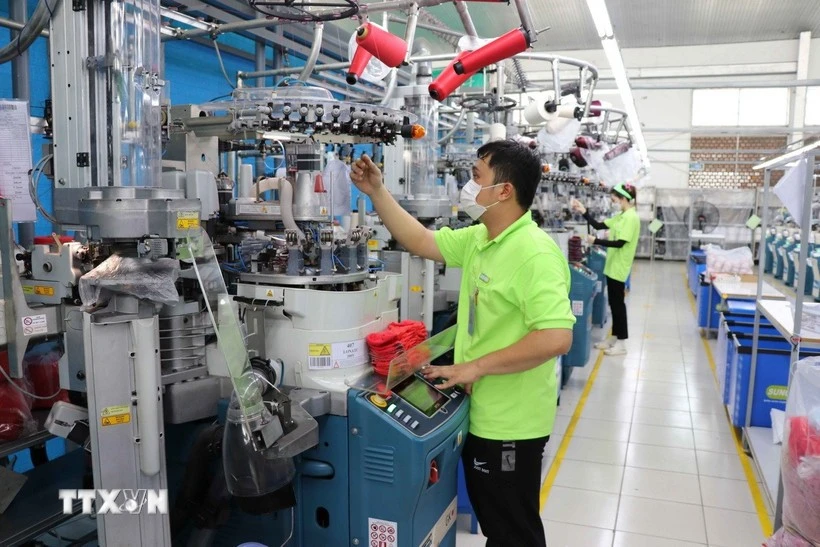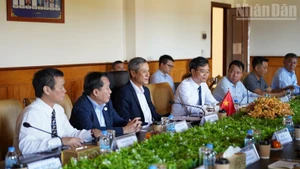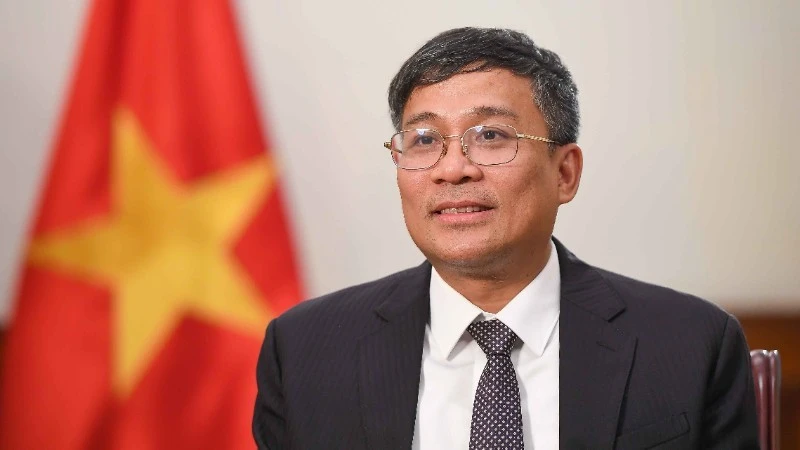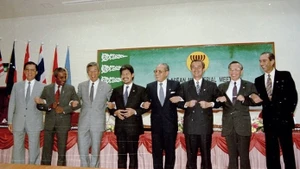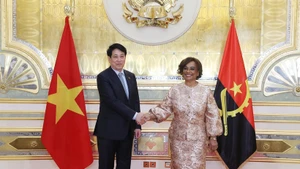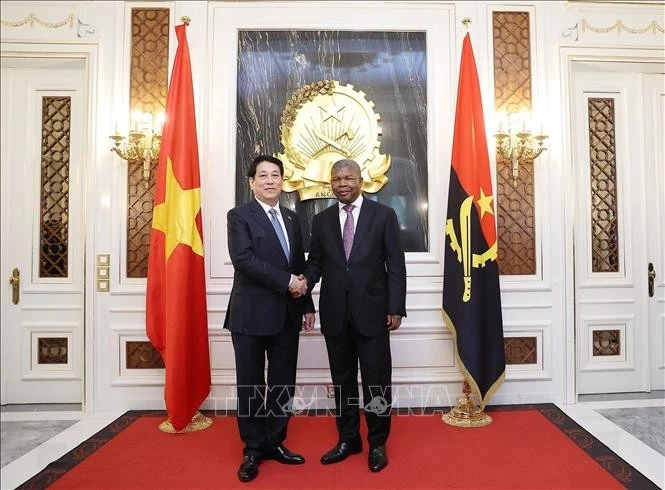Deputy Head of Vietnam's National Border Committee, Tran Duy Hai made this statement at an international press conference in Hanoi on May 23, held by the Ministry of Foreign Affairs (MOFA) on developments in the East Sea, with the participation of over one hundred local and international reporters and representatives from several diplomatic missions in Hanoi.
The note merely recognised and agreed with China’s territorial expansion to 12 nautical miles, as well as asked relevant agencies of Vietnam to respect China’s announced 12 nautical mile region, Hai said.
Hoang Sa and Truong Sa archipelagos were not mentioned in the note as at that time the country was temporarily divided at the 17th parallel and the two archipelagos were below the parallel, under the management of the Republic of Vietnam in the south. The two archipelagos were handed over to the Republic of Vietnam in 1956 in accordance with the 1954 Geneva Accords, in which China was a signatory, Hai added.
“You cannot give something which does not belong to you. The note is not valid recognition of China’s sovereignty over Xisha (Hoang Sa) and Nansha (Truong Sa) as China called the archipelagos,”, Hai said.
Hai also said that China saying that Hoang Sa was not subject to disputes ran counter to a Chinese high-level leader’s viewpoint. During a meeting with First Secretary of the Vietnam Worker's Party Le Duan on September 24, 1975, Vice Premier Deng Xiaoping recognised that there remained disputes between Vietnam and China over the two archipelagos and the two sides could discuss these issues with each other.
Vice Premier Deng’s statement is recorded in a Chinese Ministry of Foreign Affairs’ memorandum published in the People's Daily, in which China affirmed a fundamental principle of international law that sovereignty over a territory could not be born out of invasion, Hai said.
Hai affirmed that no nation in the world recognised China’s sovereignty over Hoang Sa archipelago and China’s claim of sovereignty over Hoang Sa archipelago of Vietnam had no legal basis.
In 1974, China used force to occupy Hoang Sa archipelago of Vietnam. Both the Republic of Vietnam and the Provisional Revolutionary Government of the Republic of South Vietnam protested that act and affirmed Vietnam’s sovereignty over Hoang Sa archipelago.
Internationally, the occupation of a nation’s territory by force is illegal and does not bring China sovereignty over Hoang Sa archipelago. The United Nations’ Charter and international law prohibit a country from using force to infringe another country’s territory.
Regarding China’s allegation that Vietnam had 57 oil and gas areas, in which extraction was carried out in seven areas with 37 oil rigs in disputed waters, PetroVietnam President and CEO Do Van Hau said that all activities related to oil and gas extraction of Vietnam were carried out on the country’s continental shelf in accordance with the 1982 United Nations Convention on the Law of the Sea (UNCLOS).
Hau made a presentation on PetroVietnam’s extraction areas, affirming that no oil and gas extraction and exploration by the group was outside 200 nautical miles of Vietnam’s continental shelf and exclusive economic zone, which was recognised internationally.
He said that PetroVietnam has conducted surveys in the area where China National Offshore Oil Corporation carries out bidding. He affirmed that no international companies have signed any oil and gas contracts related to the area with China, and PetroVietnam has operated normally in accordance with UNCLOS and met no protest or obstruction from foreign partners or the international community.
It was clear that China’s purpose was turning the non-disputed area into a disputed area, in order to realise its claims over a nine-dash line in the East Sea, which was condemned internationally, Hau said.
Vietnam resolutely rejects the wrong viewpoint and affirms its determination to protect the country’s legitimate interests by peaceful means in accordance with international law, Hau stressed.
Regarding China’s allegation that Vietnam used warships to attempt to prevent China from placing the Haiyang Shiyou 981, MOFA spokesperson Le Hai Binh affirmed that though Vietnam requested China many times to withdraw the oil rig and escort vessels from Vietnamese waters and stop the acts affecting maritime safety and security, as well as regional peace and stability, China did not respond and released wrong information about Vietnam’s sovereignty over Hoang Sa archipelago, sovereignty rights and jurisdiction of the country.
Deputy Commander of Vietnam Maritime Police, Ngo Ngoc Thu rejected China’s distortion and allegation, saying that China has maintained 74-137 vessels of all kinds to obstruct, block or ram Vietnam’s law enforcement vessels when they navigated towards the oil rig to communicate about the infringement.
Chinese vessels intentionally rammed Vietnam’s ships, fired high-powered water cannon, and used radio systems and headlights when attackingVietnam’s ships, injuring nine crew members.
Meanwhile, Vietnam has used only a limited number of maritime police and fisheries surveillance vessels, in efforts to practice restraint at China’s provocative acts and deliver communications requiring a withdrawal of China’s vessels and oil rig from Vietnamese waters, Thu said.
He stressed that Vietnam did not attack China’s vessels or assign warships to the area.
Responding to a reporter’s question on China’s evacuation to its citizens to distort Vietnam’s security situation, spokesperson Binh stated that the recent riots in several localities were unfortunate and the Vietnamese Government, under close direction of Prime Minister Nguyen Tan Dung, has taken drastic measures to stabilise the situation and help resume normal production and trade, with most local and foreign affected businesses resuming operations.
The Government would take all necessary measures to guarantee order and the legitimate interests of businesses, as well as ensure there was no repetition of such incidents in the future, Binh said.
Many countries valued Vietnam’s responses and no foreign enterprises, except for China, evacuated their citizens, Binh added.
Answering a question on an article by RIA Novosti on subjective and incorrect information about Vietnam-China relations, Binh stated that the article is personal with wrong information about history. He affirmed that through working with the Russian embassy in Hanoi, it was stated that the article was absolutely personal.
